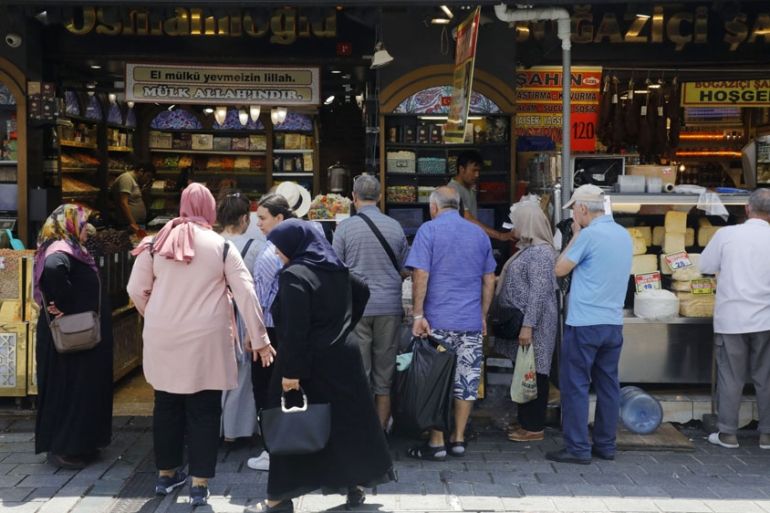Turkey sees slower inflation, surging economy under new targets
Outlook suggests Turkey looking to replicate growth levels last seen before last year’s currency crash.

Turkey laid out targets for its economy that envisage a surge in growth from near zero this year and a slowdown in inflation.
Treasury and Finance Minister Berat Albayrak said consumer price growth will ease to an annual 12% at the end of this year from 15% in August. Gross domestic product will expand 0.5% in 2019 and 5% during the following three years.
Keep reading
list of 4 itemsJobless engineers, MBAs: The hidden army of Indian election ‘consultants’
ByteDance prefers TikTok shutdown in US over sale: Report
‘We need you’: Solomon Islands’ support for US agency’s return revealed
The inflation rate will drop to 8.5% at the end of 2020 and 6% the following year, according to Albayrak’s presentation to reporters in the capital, Ankara, on Monday.
The outlook suggests Turkey is looking to replicate growth levels last seen before a currency crash last year. With the economy still fragile but on the mend, a government approach that’s starting to take shape is focused on creating incentives for banks to ramp up credit while lowering the cost of money.
What Bloomberg’s economists say…
“The good news: the growth forecast for 2019 was revised down to a more realistic level. The bad news: that dose of realism missed the 2020 growth target.”
– Ziad Daoud, Mideast Economist
Albayrak’s predictions also show policy makers remain cautiously optimistic on prices. The central bank has recently said inflation might be lower than its July prediction of 13.9%, citing downside risks from weak demand.
In his presentation on Monday, the minister said government spending would also be in line with the targeted inflation path. Price growth has slowed thanks to a stronger lira and a moderation in food costs.
Below are some of the highlights from Turkey’s new medium term economic program that Albayrak unveiled today:
-
The ratio of the central government budget deficit to GDP is seen at 2.9% in 2019, up from a previous forecast of 1.8%
-
The budget gap is seen at 2.9% of GDP in 2020 and 2021, and 2.6% in 2022
– With assistance from Asli Kandemir